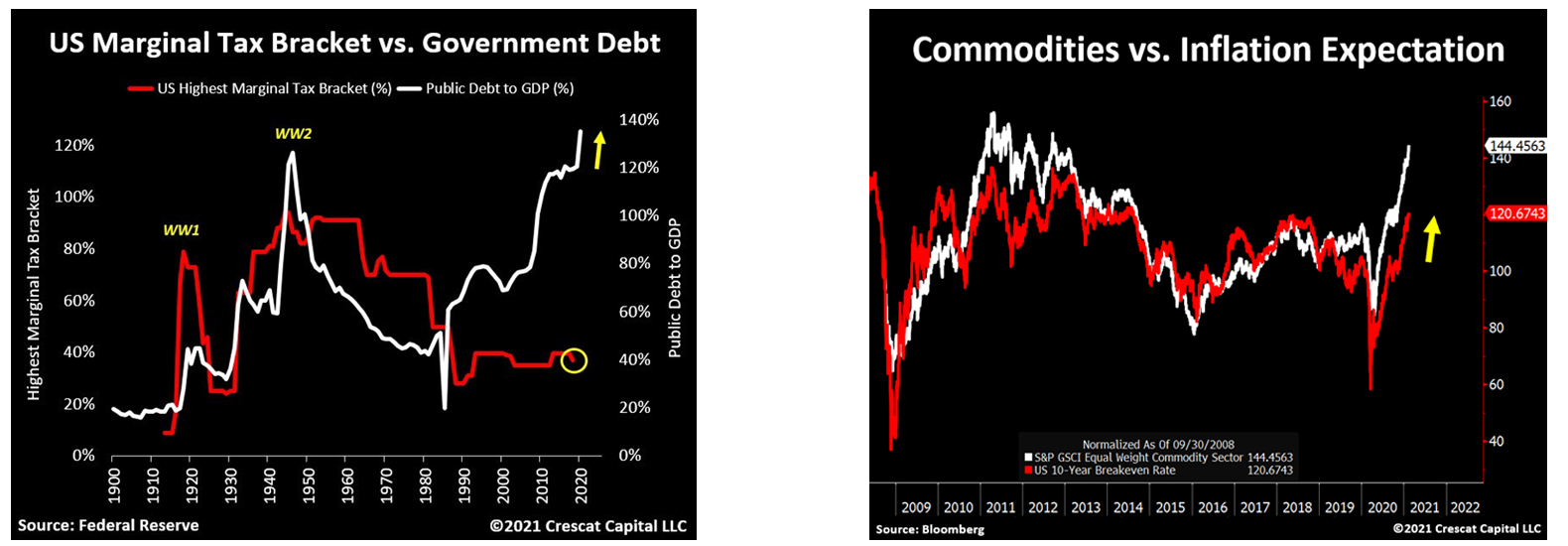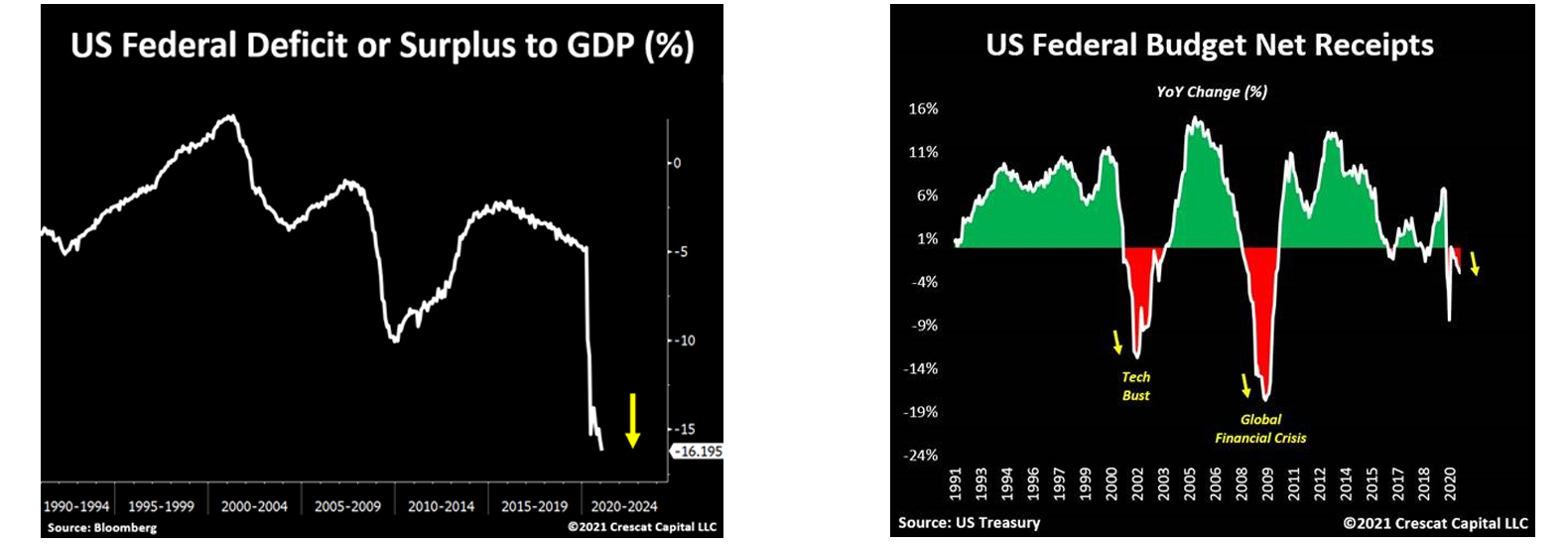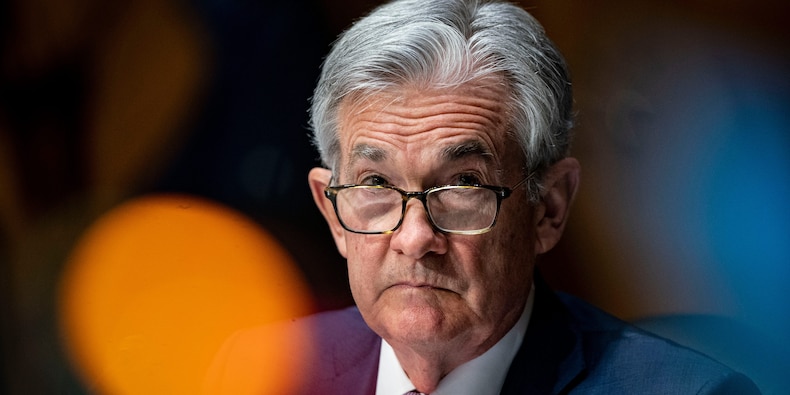The US Federal Reserve is in a tough spot as budget deficits undermine the American economy and the nation sees yields on benchmark 10-year government bonds spike. Meanwhile, Federal Reserve Chairman Jerome Powell voiced no concern about inflation during an interview at a Wall Street Journal Jobs Summit Thursday. Powell did not explain when the easy money policy would end, and following his comment, US bonds and stocks saw a massive sell-off.
The US Federal Reserve juggles with shaky returns and monetary guidelines
On March 3, 2021, Reuters reported how the 10-year U.S. benchmark note saw some sharp declines for three days immediately prior to the interview with Federal Reserve Chairman Jerome Powell at the summit. But then government bond yields rose, creating the impression to market investors that the politics of simple money was being stifled. Fed Governor Lael Brainard also discussed bond yields ahead of Powell’s summit. It did so after Powell sat before the Senate Banking Committee and the chairman dismissed concerns about the Treasury’s return.
Jerome Powell showed no sign that the easy money policy, which the Federal Reserve had put in place long before the first Covid-19 outbreak in the US, has stopped.
The following day, Powell exchanged a dialogue with reporters for the Wall Street Journal (WSJ) and again shook off concerns about government bond yields. Stocks and bonds sold almost instantly in a market downturn as the Nasdaq fell -274, the NYSE -239, and the Dow Jones Industrial Average fell -345. Powell’s lack of concern and comment on government bond yields and inflation were highlighted in a WSJ report that followed what the Fed chairman said.
“We expect inflation to rise when the economy reopens, and hopefully when the base effects pick up,” Powell said during the conference. “That could put upward pressure on prices. Today we are still far from our goals of maximum employment and inflation averaging 2% over time. We want inflation to stay above 2% and we want to be on track for inflation to stay above 2%, ”added Powell. Without the Fed chairman calming the market, participants quickly sold government bonds and stocks.
 On Thursday spot gold prices and futures fell slightly in percentage terms after the bonds were sold off.
On Thursday spot gold prices and futures fell slightly in percentage terms after the bonds were sold off.
Interestingly, Powell’s statement has a negative impact on the market and appears to have spilled over into the precious metals and cryptocurrency markets as well. Gold prices fell to $ 1,693 an ounce on March 4, and silver prices also fell to $ 25 an ounce.
 Bitcoin (BTC) also fell nearly 5% on Thursday afternoon (New York time) to $ 46,000 by the evening trading sessions. BTC picked up some speed again on Friday morning as the price approaches the $ 48,000 zone again.
Bitcoin (BTC) also fell nearly 5% on Thursday afternoon (New York time) to $ 46,000 by the evening trading sessions. BTC picked up some speed again on Friday morning as the price approaches the $ 48,000 zone again.
The billion-dollar economy also dropped billions of dollars in value on Thursday as BTC fell from $ 51,000 to over $ 48,000 during the early morning trading sessions and to $ 46.5,000 during the evening (ET) trading sessions. 24-hour statistics show that Bitcoin (BTC) has lost around 9% since Powell’s testimony.
Despite the sell-off of the market, particularly in the precious metals (PMs) sector, Crescat Capital’s portfolio manager Otavio (Tavi) Costa assumes that PMs will experience a “secular bull market”. In addition, Costa shows how the Fed’s irresponsible monetary habits leave the central bank in a “trapped” position.
 Crescat Capital’s portfolio manager Otavio (Tavi) Costa explains that the US Federal Reserve is “trapped” and has no choice but to issue a large amount of government bonds in the coming weeks. “The Fed is trapped,” says Costa. The year is just getting started and the US budget deficits hit another record. Now at its worst in 70 years. The current path of budget spending will result in record government bond issuance this year, ”the Crescat manager emphasizes.
Crescat Capital’s portfolio manager Otavio (Tavi) Costa explains that the US Federal Reserve is “trapped” and has no choice but to issue a large amount of government bonds in the coming weeks. “The Fed is trapped,” says Costa. The year is just getting started and the US budget deficits hit another record. Now at its worst in 70 years. The current path of budget spending will result in record government bond issuance this year, ”the Crescat manager emphasizes.
First, Costa’s Twitter thread explains that the US budget deficits are at their worst in 70 years. So horrific, in fact, that Costa believes it will lead to “a record bond issuance this year”. He noted that the Fed, along with U.S. lawmakers, has already raised $ 2.2 trillion through the CARES Act.
“Then another $ 900 billion in incentives in December,” says Costa. “Given the decline in tax revenue and other discretionary and non-discretionary spending, the government had to spend $ 4.4 trillion in net borrowing in 2020 to fund these programs,” added the portfolio manager. “To fund this operation, the Fed bought $ 2.4 trillion of these government bonds, or 54% of the total issue. That equates to an average of $ 197 billion per month. “
Costa added:
If the Fed decides to stick to the $ 80 billion / month plan in 2021, it would be 60% less than last year. The math doesn’t add up. Household expenditure is likely to be significantly higher. The Biden government is now planning a two-stage stimulus package: rescue and recovery. The “rescue” will be close to 1.9 tons.
Biden’s recovery package needs to be adopted soon
With all the Fed cards on the table, Biden’s recovery package “must be passed in the coming weeks before the unemployment benefit programs run out of money. In other words, a government bond tsunami is likely to be underway, ”said Costa.
He also stressed that the US federal government’s net revenue is overflowing, which puts the Fed in a different position. The Crescat executive believes foreign investors and US banks will not be able to fund all of this debt. “The ball is clearly in the Fed’s place,” said Costa.
 “The government cannot afford to have this ‘money party’ end,” stressed Costa. “This is not like the inflationary times we had after the global financial crisis. It’s just the opposite. Today we have inflationary pressures on both the demand and supply sides of the economy. It’s about fiscal recklessness. Massive debt build-up. Money dilution to suppress interest rates. Lack of basically cheap assets that bring more than inflation. A worsening current account deficit (…) “
“The government cannot afford to have this ‘money party’ end,” stressed Costa. “This is not like the inflationary times we had after the global financial crisis. It’s just the opposite. Today we have inflationary pressures on both the demand and supply sides of the economy. It’s about fiscal recklessness. Massive debt build-up. Money dilution to suppress interest rates. Lack of basically cheap assets that bring more than inflation. A worsening current account deficit (…) “
As the American people continue to indulge in financial irresponsibility, the current and next generation of US taxpayers will pay the toll on these debts.
“In our analysis,” writes Costa. “The Fed will have no choice but to significantly increase its planned quantitative easing. After all, the central bank is the lender of last resort. But US taxpayers will also be hooked. Throughout history, increases in income tax rates tend to follow a period of large government spending. It is only a matter of time before this topic is discussed more, ”explains the Crescat analyst.
Although Powell was telling the markets the lies he suspected everyone wanted to hear, the bond market vigilantes did not believe him. His refusal to inflate is no longer credible. He might be forced to tell the truth. Granted, inflation is a problem, but the Fed is not going to do anything about it.
– Peter Schiff (@PeterSchiff), March 4, 2021
Andrew Tilton, executive of Goldman Sachs, told CNBC that markets had predicted an early tightening of the Fed. As the 10-year notes rose, people began to suspect that Chairman Jerome Powell might change his stance on current fiscal policy.
“The Fed will talk about a rejuvenation at the earliest [monetary easing policies] At the end of 2021, and a year later, interest rate hikes will not be discussed, ”explained Tilton. In the meantime, all of these factors have hardened the mindset of BTC bulls and precious metals fans alike. Some PM fanatics like Peter Schiff believe that only PMs like gold and silver will benefit from the unprecedented monetary stimulus.
Still, there are plenty of crypto advocates who believe that the Fed’s easing programs will strengthen BTC and the digital asset economy. While others think that in a world dominated by central planners who take no responsibility for their reckless spending, there is room for both precious metals and cryptocurrencies.
What do you think of the situation at the Fed and the massive monetary policy irresponsibility of the central planners? Let us know what you think on this matter in the comments section below.
Tags in this story
Bitcoin, Bitcoin (BTC), Bond Markets, Crescat Capital, Deflation, Easy Money, Economy, Economy, Depleted Money, Fed Printing, Federal Reserve, Gold, Inflation, Jerome Powell, Otavio (Tavi) Costa, Peter Schiff, QE, quantitative easing (QE), Silver, Stimulus, Stocks, Fed, Treasury Bonds
Photo credit: Shutterstock, Pixabay, Wiki Commons, Crescat Capital, Twitter, Otavio (Tavi) Costa, Bitcoinwisdom.io, gold.org,
Disclaimer of liability: This article is for informational purposes only. It is not a direct offer or an invitation to submit an offer to buy or sell, or a recommendation or approval of products, services or companies. Bitcoin.com does not provide investment, tax, legal, or accounting advice. Neither the company nor the author are directly or indirectly responsible for any damage or loss caused or allegedly caused by or in connection with the use or reliance on any content, goods or services mentioned in this article.

